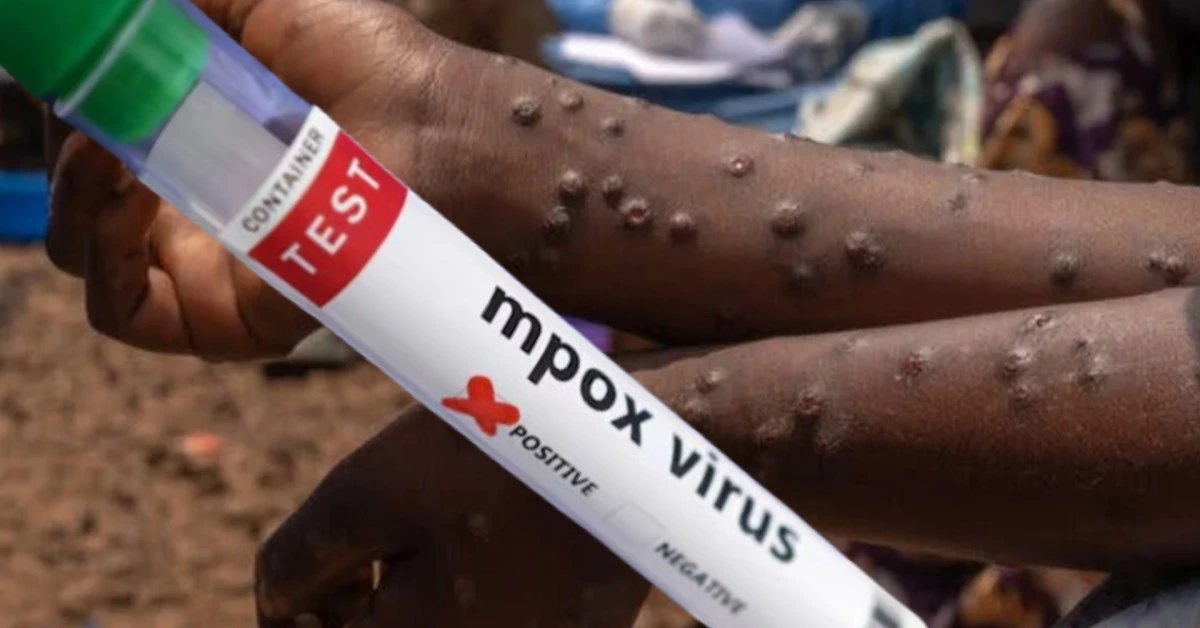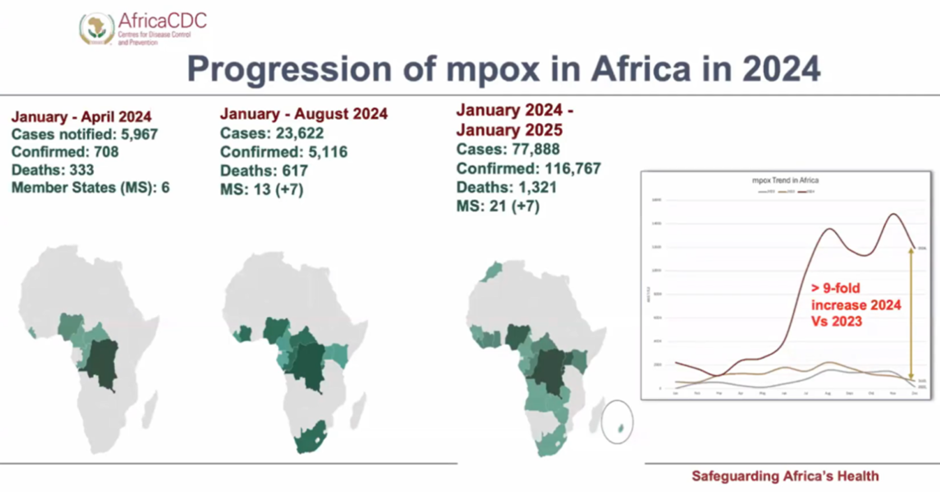
SIERRA LEONE – Sierra Leone has reported its first confirmed cases of mpox, with two infections confirmed in the country’s Western Area Urban and Rural districts.
These cases, announced on 10 January, have no known travel history, and 25 individuals who had contact with the patients are being closely monitored.
The Africa Centres for Disease Control and Prevention (Africa CDC) has expressed concern, with Dr. Jean Kaseya, the CDC’s Director-General, describing the situation as a significant public health emergency.
He noted, “We are seeing a sharp increase in cases compared to 2023, and this remains a significant threat to public health in Africa.”
The mpox outbreak is not confined to Sierra Leone, as the continent has experienced a sharp rise in cases. Africa has recorded 77,888 mpox cases over the past year, with 16,767 confirmed infections spread across 21 countries.
The Central African region is the hardest hit, accounting for 85% of all cases and 99% of deaths, with the Democratic Republic of Congo (DRC) serving as the epicenter.

The death toll for 2024 reached 1,321, with a case fatality rate of 1.8%, underscoring the severity of the outbreak, particularly with the emergence of new virus clades such as Clade 1b.
Dr. Kaseya explained that the outbreak was exacerbated by inadequate testing, slow vaccine rollouts, and gaps in community-level health interventions.
In response, the DRC has made strides in vaccine deployment, although the initial rollout was slow.
By December 2023, the country had received 365,000 doses of the MVA vaccine but had only administered 55,000.
However, recent efforts have seen over 120,000 additional doses administered. “We are now moving to a targeted vaccination of entire high-risk areas instead of just contacts,” Dr. Kaseya noted, emphasizing the shift to a more community-based vaccination strategy, which is proving more efficient.
To further strengthen its response, the Africa CDC has dispatched 80 epidemiologists and 2,400 community health workers to hotspots, including DRC, Uganda, and Burundi.
Moreover, Africa CDC has secured LC16 vaccines, which will be deployed in February and March, primarily targeting children in DRC.
Unlike the Bavarian Nordic MVA-BN vaccine, which was primarily used for adults, the LC16 vaccine is approved for use in children and requires an intradermal injection.
The vaccine offers advantages due to smaller dose requirements but may require additional training for healthcare workers due to the nature of the injection.
China becomes the ninth country outside of Africa to report Clade 1b strain
Meanwhile, China has become the ninth country outside of Africa to report a case of the more deadly Clade 1b strain, confirming the case on 9 January.
The case was linked to a traveler returning from Africa. Dr. Kaseya sees this as an opportunity for global collaboration, calling for solidarity in responding to emerging health threats.
While mpox remains a critical issue, Rwanda’s successful response to a Marburg virus outbreak last year is being highlighted as a model for epidemic control.
In a recent briefing, Prof. Claude Muvunyi, Director-General of the Rwanda Biomedical Centre, shared how the country managed its first Marburg outbreak in September 2024.
He described how Rwanda quickly activated its emergency response mechanisms, focusing on case detection, contact tracing, and patient isolation.
A key achievement was the establishment of a specialized Marburg treatment center, which helped reduce the case fatality rate to 23%, a significant improvement from the typical rates of 24-88% seen in previous outbreaks.
Prof. Muvunyi credited the World Health Organization (WHO) for its support in providing expertise, test kits, and personal protective equipment.
WHO also facilitated the deployment of health professionals from Uganda, Liberia, and Sierra Leone to support Rwanda’s response.
Muvunyi emphasized that Rwanda’s experience highlights the importance of early detection, regional cooperation, and sustained investments in global health security.
“Outbreaks do not happen in isolation, and without timely interventions and predictable funding, the next emergency could be just around the corner,” he said.
XRP HEALTHCARE L.L.C | License Number: 2312867.01 | Dubai | © Copyright 2025 | All Rights Reserved